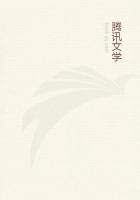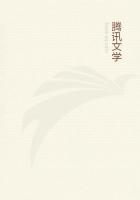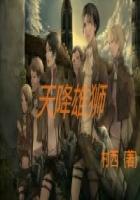If by the presence of such a body, then there will be vision though there be no intervenient; if the intervenient is the sole attractive agent, then we are forced to think of the visible object as being a Kind utterly without energy, performing no act.But so inactive a body cannot be: touch tells us that, for it does not merely announce that something is by and is touched: it is acted upon by the object so that it reports distinguishing qualities in it, qualities so effective that even at a distance touch itself would register them but for the accidental that it demands proximity.
We catch the heat of a fire just as soon as the intervening air does; no need to wait for it to be warmed: the denser body, in fact, takes in more warmth than the air has to give; in other words, the air transmits the heat but is not the source of our warmth.
When on the one side, that of the object, there is the power in any degree of an outgoing act, and on the other, that of the sight, the capability of being acted upon, surely the object needs no medium through which to be effective upon what it is fully equipped to affect: this would be needing not a help but a hindrance.
Or, again, consider the Dawn: there is no need that the light first flood the air and then come to us; the event is simultaneous to both: often, in fact, we see [in the distance] when the light is not as yet round our eyes at all but very far off, before, that is, the air has been acted upon: here we have vision without any modified intervenient, vision before the organ has received the light with which it is to be linked.
It is difficult to reconcile with this theory the fact of seeing stars or any fire by night.
If [as by the theory of an intervenient] the percipient mind or soul remains within itself and needs the light only as one might need a stick in the hand to touch something at a distance, then the perception will be a sort of tussle: the light must be conceived as something thrusting, something aimed at a mark, and similarly, the object, considered as an illuminated thing, must be conceived to be resistant; for this is the normal process in the case of contact by the agency of an intervenient.
Besides, even on this explanation, the mind must have previously been in contact with the object in the entire absence of intervenient;only if that has happened could contact through an intervenient bring knowledge, a knowledge by way of memory, and, even more emphatically, by way of reasoned comparison [ending in identification]: but this process of memory and comparison is excluded by the theory of first knowledge through the agency of a medium.
Finally, we may be told that the impinging light is modified by the thing to be seen and so becomes able to present something perceptible before the visual organ; but this simply brings us back to the theory of an intervenient changed midway by the object, an explanation whose difficulties we have already indicated.
5.But some doubt arises when we consider the phenomena of hearing.
Perhaps we are to understand the process thus: the air is modified by the first movement; layer by layer it is successively acted upon by the object causing the sound: it finally impinges in that modified form upon the sense, the entire progression being governed by the fact that all the air from starting point to hearing point is similarly affected.
Perhaps, on the other hand, the intervenient is modified only by the accident of its midway position, so that, failing any intervenient, whatsoever sound two bodies in clash might make would impinge without medium upon our sense?
Still air is necessary; there could be no sound in the absence of the air set vibrating in the first movement, however different be the case with the intervenient from that onwards to the perception point.
The air would thus appear to be the dominant in the production of sound: two bodies would clash without even an incipient sound, but that the air, struck in their rapid meeting and hurled outward, passes on the movement successively till it reaches the ears and the sense of hearing.
But if the determinant is the air, and the impression is simply of air-movements, what accounts for the differences among voices and other sounds? The sound of bronze against bronze is different from that of bronze against some other substance: and so on; the air and its vibration remain the one thing, yet the difference in sounds is much more than a matter of greater or less intensity.
If we decide that sound is caused by a percussion upon the air, then obviously nothing turning upon the distinctive nature of air is in question: it sounds at a moment in which it is simply a solid body, until [by its distinctive character] it is sent pulsing outwards: thus air in itself is not essential to the production of sound; all is done by clashing solids as they meet and that percussion, reaching the sense, is the sound.This is shown also by the sounds formed within living beings not in air but by the friction of parts; for example, the grinding of teeth and the crunching of bones against each other in the bending of the body, cases in which the air does not intervene.
But all this may now be left over; we are brought to the same conclusion as in the case of sight; the phenomena of hearing arise similarly in a certain co-sensitiveness inherent in a living whole.
6.We return, then, to the question whether there could be light if there were no air, the sun illuminating corporeal surfaces across an intermediate void which, as things are, takes the light accidentally by the mere fact of being in the path.Supposing air to be the cause of the rest of things being thus affected, the substantial existence of light is due to the air; light becomes a modification of the air, and of course if the thing to be modified did not exist neither could be modification.
The fact is that primarily light is no appanage of air, and does not depend upon the existence of air: it belongs to every fiery and shining body, it constitutes even the gleaming surface of certain stones.

